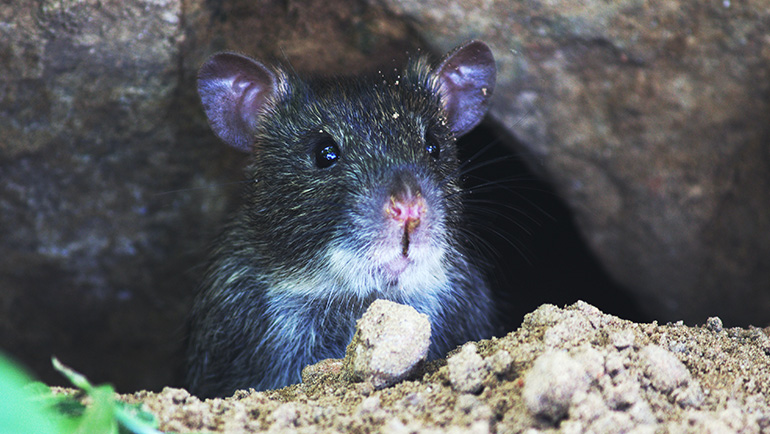Reasons Why Winter Brings Mice and Rats to Your Property
Rats and mice frequently spend the summer outdoors where it is warm, and food is easy to get by. When it becomes colder outside, they’ll probably move inside, where they can make nests and scavenge food to get them through the winter.
Commercial buildings are prime targets for rodents looking for winter residences since they are typically empty at night and frequently have an abundance of food supplies.
Rural and Urban Settings
Different mouse behavior can be anticipated depending on where the commercial property is located.
They frequently nest in rural locations during the warm summer months, which means that there may already be significant infestations when winter rolls around. Urban mice and rats typically breed all year long in warm, indoor nesting areas.
However, they can reproduce year-round. After around three months, young adult rodents are grown, and adults who have just given birth are prepared to mate and produce a new litter in about twenty-four hours.
Therefore, it is essential for business owners to be aware of any indicators of infestation and to act quickly to address them.
How to Identify Infestation Signs
Business owners can determine whether rodents have moved into their properties by observing a variety of symptoms. Early detection of these symptoms, combined with a rigorous inspection schedule, can make the difference between effective and ineffective insect management.
Proof of Nesting
Paper, cardboard, or plants that have been shredded may be evidence of nest construction. Thorough inspections are crucial since nests are typically constructed in low-traffic places that are hidden from view.
Property Damage
Because rats and mice enjoy chewing on items, signs of gnawing or burrowing may indicate an infestation. Inspect storage rooms or warehouses for packaging damage as rodents collect materials for their nests.
Rats and mice will obviously target food goods as their primary prey, so any signs of feeding should be reported right once.
Animal Tracks
In dusty or isolated areas, rodents frequently leave track marks like rail swipes and footprints as proof of their movements. Mice and rats frequently travel the same pathways to and from their nests, leaving greasy and soiled smear marks as they drag their bodies across the ground.
Bodily Waste
Animals all produce waste. Thankfully, in contrast to insect droppings, rodent feces are simple to identify. Staff members will be made aware of such signals and warned of potential issues.
For staff to know what to do if an infestation is found, it is crucial to ensure that they are completely aware of these indicators and that a clear pest management policy is in place.
Pest Control Techniques for Winter
It is even more crucial to make sure that any open food goods are stored securely in sealed containers due to the increased scarcity of food. Plastic containers are necessary since animals will seek whatever food they can get.
Businesses that cater to animals, including pet stores or veterinarians, must ensure that all pet food is safely stored each night.
Stockpiles of wood are typically kept by builders’ merchants or businesses that sell fuel during the winter. Due to the good cover and security that wood piles offer, rodents adore using them as a place to nest.
Wood that is elevated above the ground will be far less appealing to rodents looking to build nests. Wood should be stored away from structures to make it more difficult for rodents to migrate covertly between the two areas.
Conclusion
Another strategy for lowering the likelihood of infestation is to maintain any landscaping before the weather gets chilly. Cutting back on overgrown areas to remove hiding spots and removing branches that could be used to access building roofs are also excellent strategies to make the environment less inviting to unwanted animals.
If, despite your best efforts, a rat or mouse infestation is found during the winter, make the smart choice of employing professionals to carry out commercial pest control services.
Do you need help with pest control in Thornton Colorado? Contact Bee Smart Pest Control! We offer many pest control programs to keep your home safe year-round, and Bee Smart Pest Control will help you get a personalized solution. Bee Smart Pest Control is a local business, so we understand the nuances of Colorado pest control and use chemicals that aren’t harmful to your family or pets. We pride ourselves on our safety and ability to relate to our customers on a personal level. Contact Bee Smart Pest Control online, or call us at 720-937-0527, to get a solution for your exact pest control problem today!

